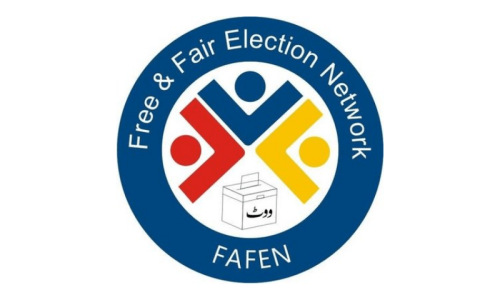THE dream of clean cotton will remain elusive owing to a lack of political will on the part of successive governments, the discouraging attitude of industrialists and a host of other factors.
The issue of cotton contamination has been plaguing the sector for decades, causing losses to the national exchequer and growers that amount to billions of rupees per annum. No success has been achieved from the half-hearted attempts made to remedy the situation.
As the country lacks implementation of standards, heavy fees have to be paid to foreign consultants for certification of cotton export consignments. In 2002, the Pakistan Cotton Standards Institute was set up to standardise clean cotton and later certify its quality for international markets where Pakistani lint is treated as third grade produce owing to minor contaminations.
Growers lose over Rs12bn a year since impure lint fetches a lower price. However, the proposal to train pickers never got the go-ahead as the political leadership diverted all funds to the Orange Line Metro Train
To encourage growers and ginners to produce clean lint, the government offered a premium. With the cooperation of the textile millers, the growers were to be paid Rs50 per maund (40 kilograms) and the ginners Rs30. The Trading Corporation of Pakistan promised to purchase pure produce if the millers refused to do so.
The project hit snags after a couple of years. As per the requirements of the project, cotton was brought to units in open trolleys but ginners complained that growers were mixing water in cotton to increase its weight.
Rizwan Chaudhry, a ginner, says checking the ratio of moisture in raw cotton is difficult when it is in a loose form without being packed in bags. He also claims that millers don’t pay the promised premium.
The project was revived for a couple of years in 2006 with the federal and Punjab government sharing the premium payments equally.
Lint first gets polluted during the picking, storage and transportation stages. It is traditionally picked by mostly untrained women who are a major source of contamination.
Threads from plastic bags and silk dupattas used for collecting the cotton bolls plucked from flowers, as well as hair, get mixed with the produce causing impurity during spinning, dyeing and subsequent processes. Pieces of leaves, immature and empty bolls, stems, flowers, sticks and weeds, trash and dust also become part of the produce during storage and hauling stages.
To circumvent this issue, the Punjab agriculture department prepared a proposal for training pickers and providing them with special clothes to wear while they picked cotton bolls. Trolleys were also to be provided for the transport of produce to ginning units or markets. Under the plan submitted in 2017, at least 416,000 female pickers were to be trained by master trainers from among women officials of the department.
But the proposal never got the go-ahead from the political leadership. The general impression is that the government remained obsessed with the Orange Line Metro Train which sucked up funds that were meant for other projects across the province.
“Not a single penny was released for the project. The relevant documents sat on tables of high-ups collecting dust,” laments an official associated with the project. “We could not even provide grey cloth to pickers or tractor-trolleys to prevent financial losses of over Rs12 billion being incurred by cotton growers. What the country loses because of earning less from the export of impure lint is a separate story.”
According to him, some pure cotton was picked through own resources but growers got discouraged when the millers did not pay them the right price.
Notwithstanding these difficulties, the extension wing of the department is seeking to intervene and support the harvest of a contamination-free cotton crop in 2019-20. In a letter to all deputy directors of cotton growing districts, director general Dr Anjum Ali Buttar has requested women officers to provide training to pickers and to refresh the knowledge of other extension agents.
Each woman officer has been tasked to conduct at least 15 training sessions during the ongoing cotton season, while agriculture officers and field assistants are to ensure maximum participation and raising of awareness for this purpose.
The deputy directors were asked to submit a schedule for training sessions and orientation seminars latest by July 31. In the meantime, standard operating procedures for cotton picking, storage and transport have been prepared and circulated among the concerned authorities.
But so far nothing has been done as all are waiting for the release of funds, reveals an official privy to the developments.
Published in Dawn, The Business and Finance Weekly, August 5th, 2019















































Dear visitor, the comments section is undergoing an overhaul and will return soon.